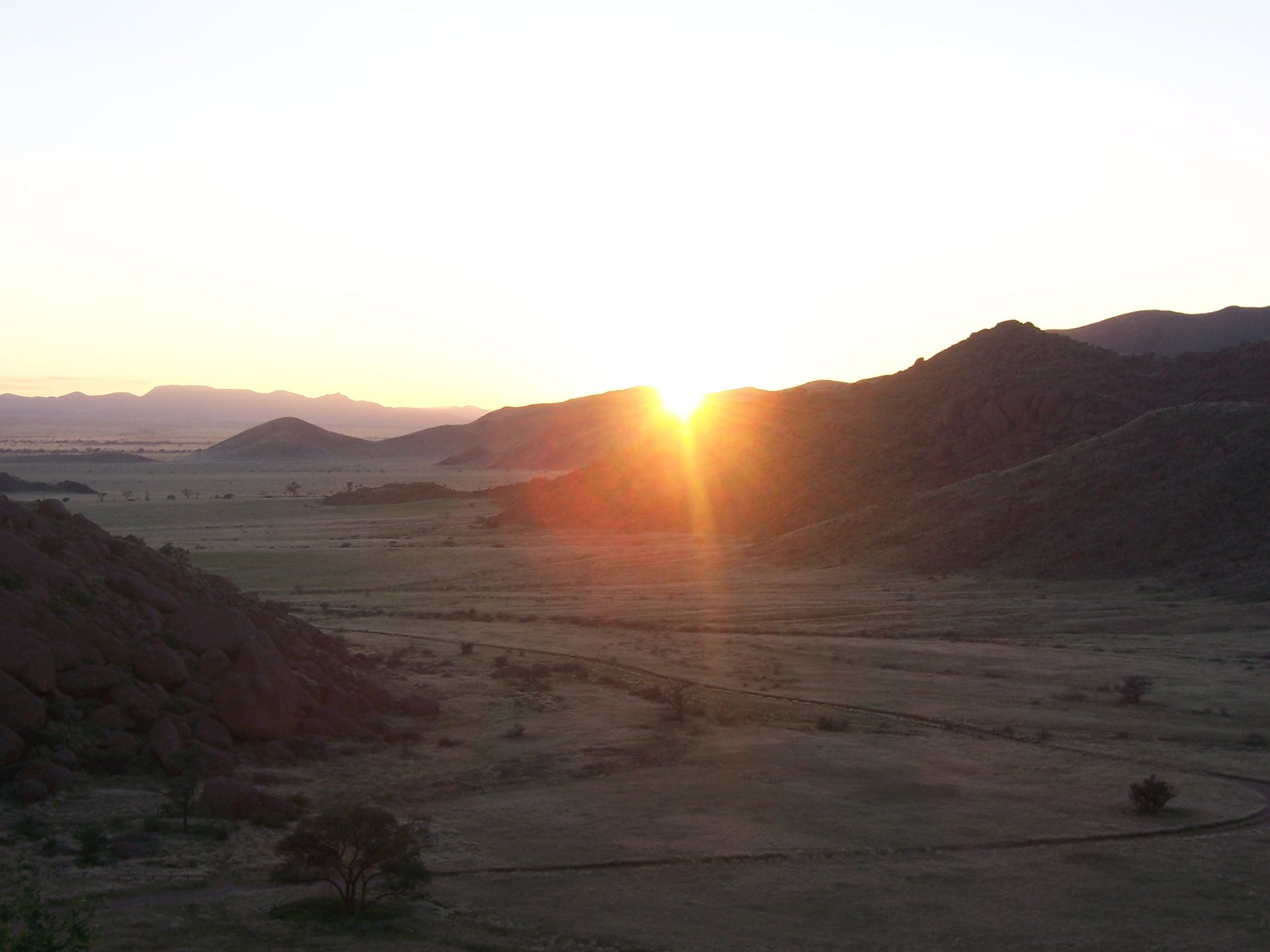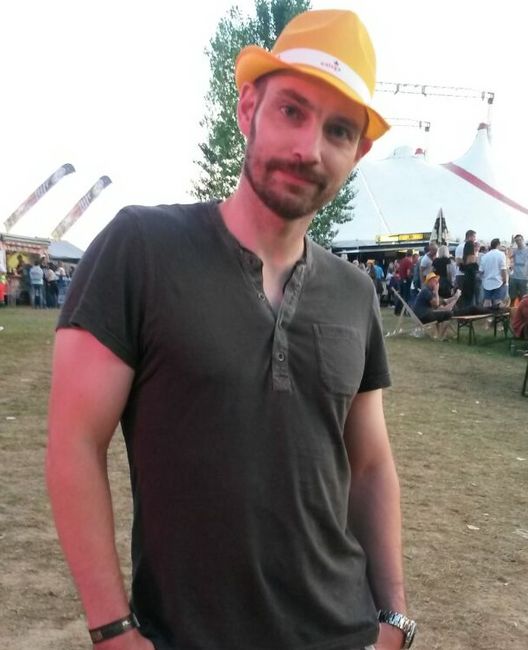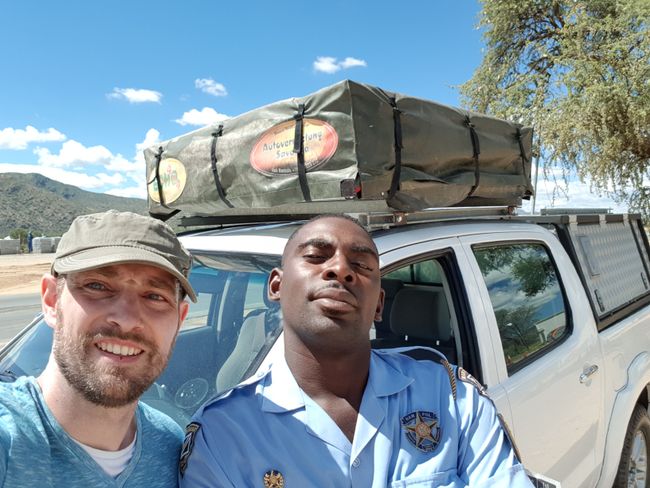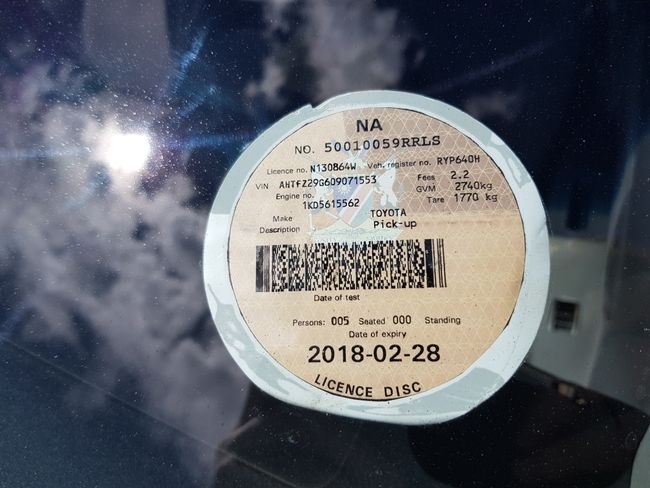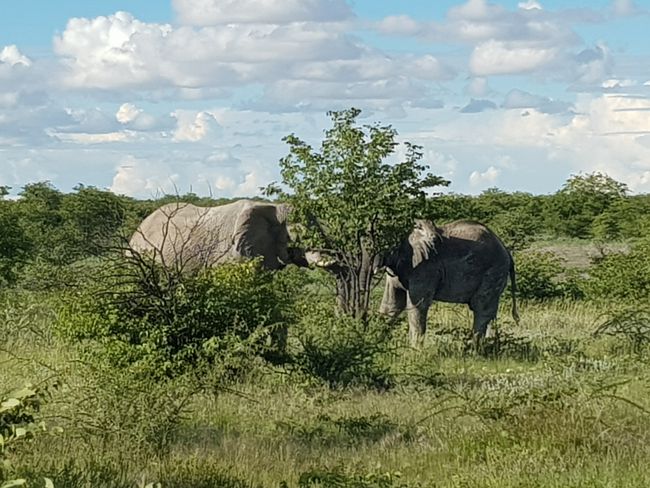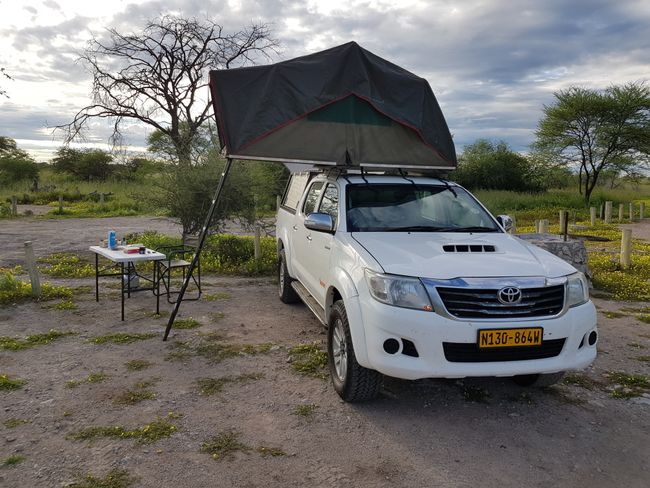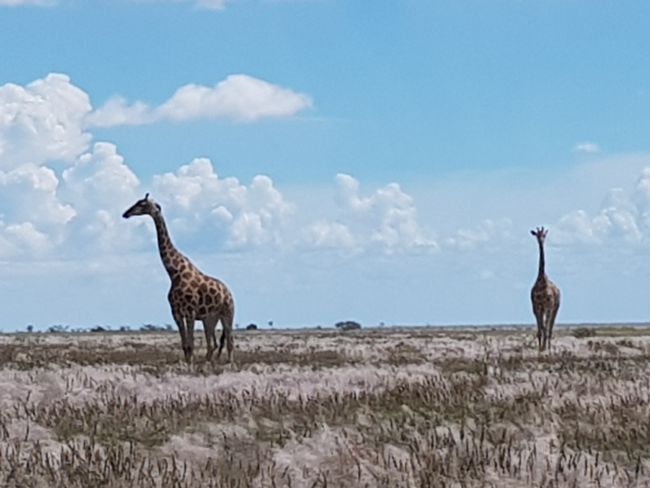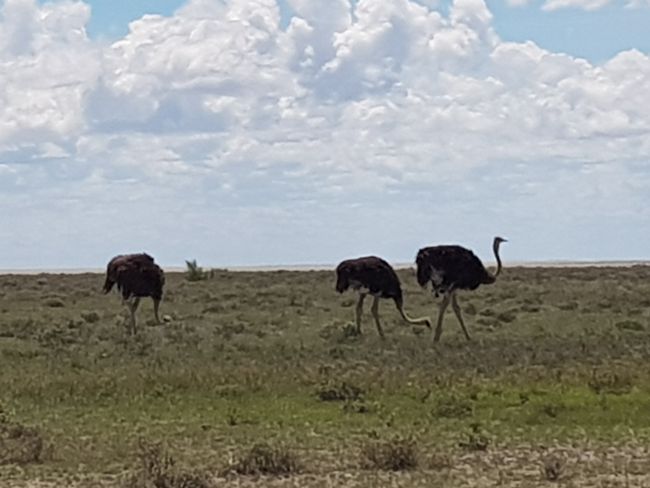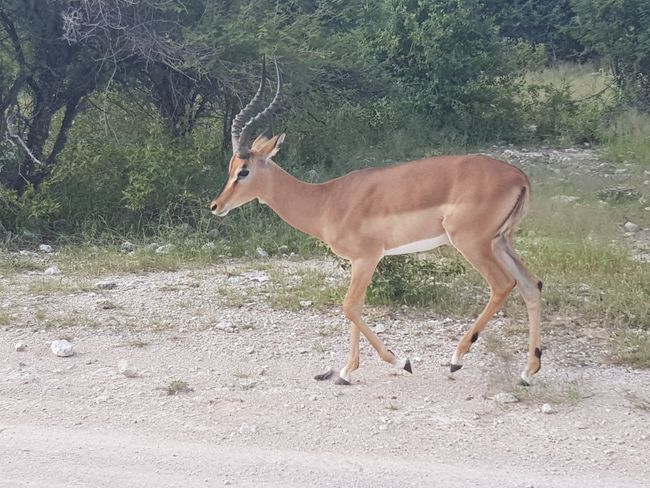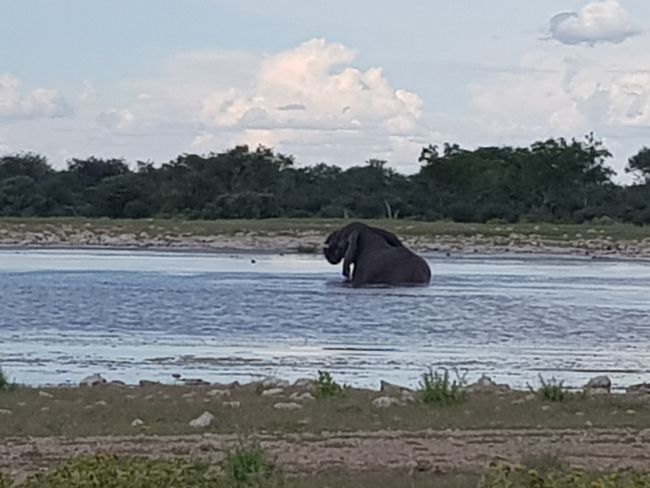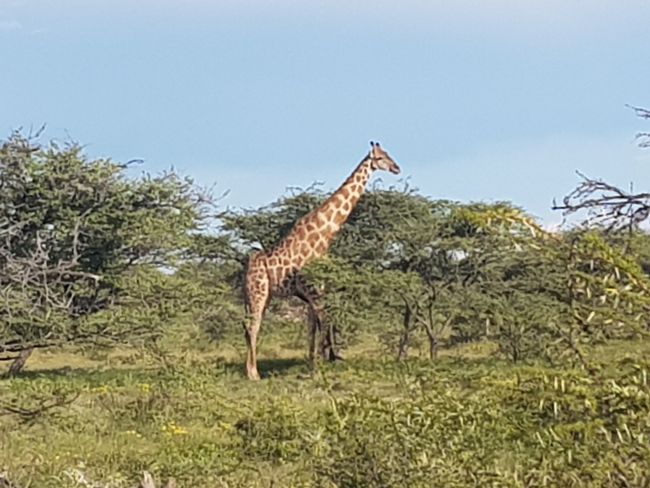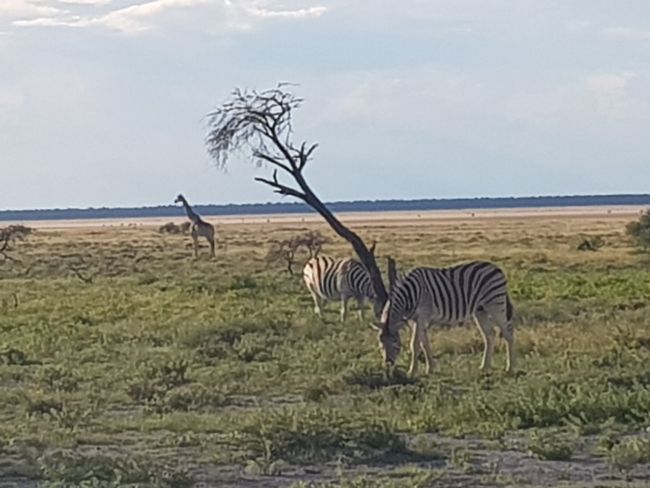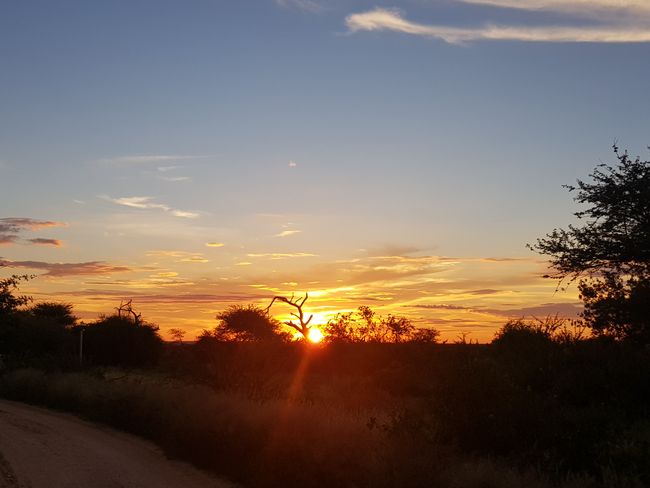Car rental and Etosha
Atejade: 11.04.2018
Alabapin si iwe iroyin
On Monday morning, I picked up my rental car in Windhoek, a Toyota Hilux (a large off-road vehicle) with a roof tent and all the equipment needed for camping! After a thorough introduction to the car and setting up and taking down the tent, I could finally start driving!
But I had only been driving for about half an hour when I was already stopped at a police checkpoint... A quick look at the windshield and I was pulled over! The registration sticker had expired, so I wasn't allowed to continue driving... So I called the car rental company and had someone come with a new sticker. But since I had already driven for a while, it took some time for the guy to arrive. Fortunately, the policemen who had stopped me were very friendly and we had a pleasant conversation! =)
After the guy from the car rental company finally arrived and put the new sticker on the windshield, I could finally continue driving! There was still a long way to go to Etosha!
Fortunately, this happened at the beginning of the tour and not in the middle of nowhere where no one could quickly come to help!
The rest of the drive went smoothly. As soon as I arrived in Etosha, a national park covering over 25,000 square kilometers, I saw the first elephants. After a few kilometers, I reached my camp and could set up my new home for the first time. My camping neighbors were a couple from North Rhine-Westphalia who had bought too much meat and couldn't use it all before leaving Etosha. And there are inspections at the exit! No meat is allowed to be taken out of Etosha! So they had to throw it away or give it away. They invited me to have 1-2 steaks with them and I thanked them with a beer and shared my pineapple with them. =)
Setting up the tent and spreading out everything needed for the evening and night takes about an hour. But taking it down is very exhausting! Usually, it takes two people, one person folds the tent on one side and the other person ensures that everything folds nicely together on the other side. But now I'm alone. So I folded the tent, around the car, lifted the tent again, and carefully packed all the sheets inside before throwing the cover sheet over it and securing it properly. It takes over 2 hours to have everything ready and be able to go! Fortunately, I set my alarm for half past 7, so I was ready to check out by 10.
I was driving for a while when suddenly a lot of cars were parked there, some crosswise to the direction of travel. And when cars stop in Etosha, it's because there's something to see! But I couldn't see anything and everything was clearly visible. So I drove next to a car and asked what there was to see. 2 lions! One of them had probably moved away, but one was still lying in the dried-up riverbed, about 1-2 kilometers away. So I reversed a bit and eventually saw a spot in the riverbed. But it could have also been a rock or bush. I took out my binoculars and there she was, the lioness lying in the riverbed! Jackpot! I watched her for a while and she eventually stood up, only to lie down again. So I continued driving.
The direct route to my next camp would have been about 134 km. But in Etosha, you don't take the direct route! You drive here and there, looking out for animals. Sometimes the detour is successful and you get to see giraffes, zebras, or even elephants, other times there's nothing to see or just the 1,000,000th springboks, oryx, wildebeests, or kudus. You get tired of seeing them and don't slow down anymore just to see them again! Eventually, I reached my camp and still had some time. So I took another drive. And BAM, there was an elephant bathing in a waterhole! =D
The second night was less eventful. Didn't meet any new people, had dinner, and went to bed early because the alarm went off at half past 6 to get ready for the journey to the Epupa Falls. 440 km and over 8 hours of driving, if you can make good progress on the 'roads' up here! Besides, my car doesn't have a particularly powerful engine! Normally, the maximum speed is 120 km/h, and downhill it can reach slightly over 130 km/h. But then it starts beeping, too fast, too fast, beep, beep, beep!!! In Namibia, the maximum speed on paved roads is 120 km/h. On gravel path roads (gravel tracks), it's only 80 km/h with all-wheel drive, and 60 km/h without all-wheel drive. And roughly 90% of the roads outside of cities in Namibia are gravel paths. No one adheres to the speed limits, but the rental cars beep if you drive too fast, and they're also equipped with a black box, so they could track it if necessary. Now, of course, there's always a truck in front of you that can only drive 80 and when you want to overtake, you either can't see anything or there's oncoming traffic! So you have to slow down to 80 and when it's clear, overtake! The car only needs about half a minute to accelerate from 80 to 120 again, and you're basically cruising next to the truck for what feels like an eternity until you can finally pass it! So you have to be able to oversee long distances to be able to overtake if you've been slowed down to 80... It's a bit annoying! Because on the long distances you have here every day, driving at 80 for a long time or consistently driving at 120 makes a difference! So you always want to maintain the 120 km/h if possible!
So, you'll find out in the next blog post what I experienced on the way to the Epupa Falls and whether I reached my destination! ;)
Alabapin si iwe iroyin
Idahun (1)
Claudia
ich lese heraus, dass ein unterhaltsamer beifahrer auf so mancher strecke nicht verkehrt wäre ... ;)
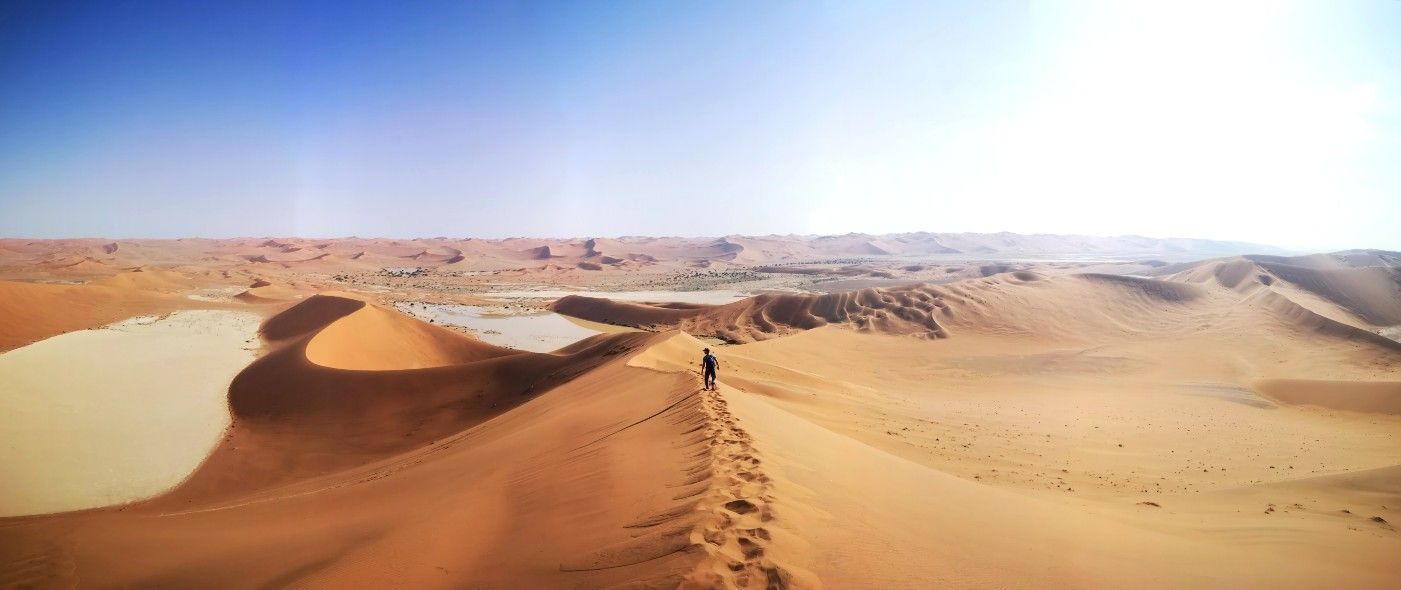
Awọn ijabọ irin-ajo Namibia
